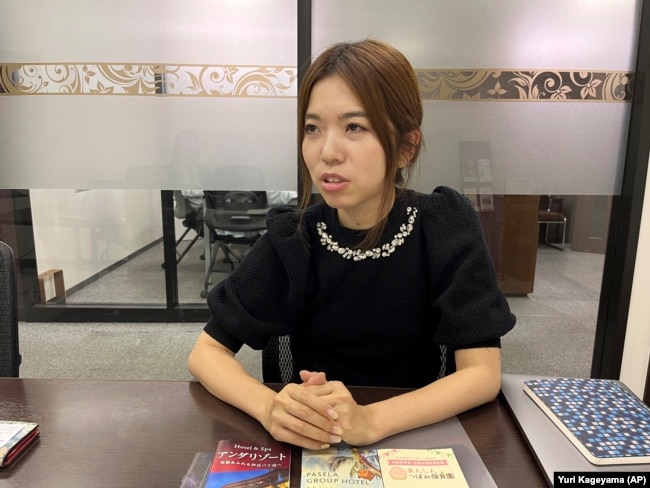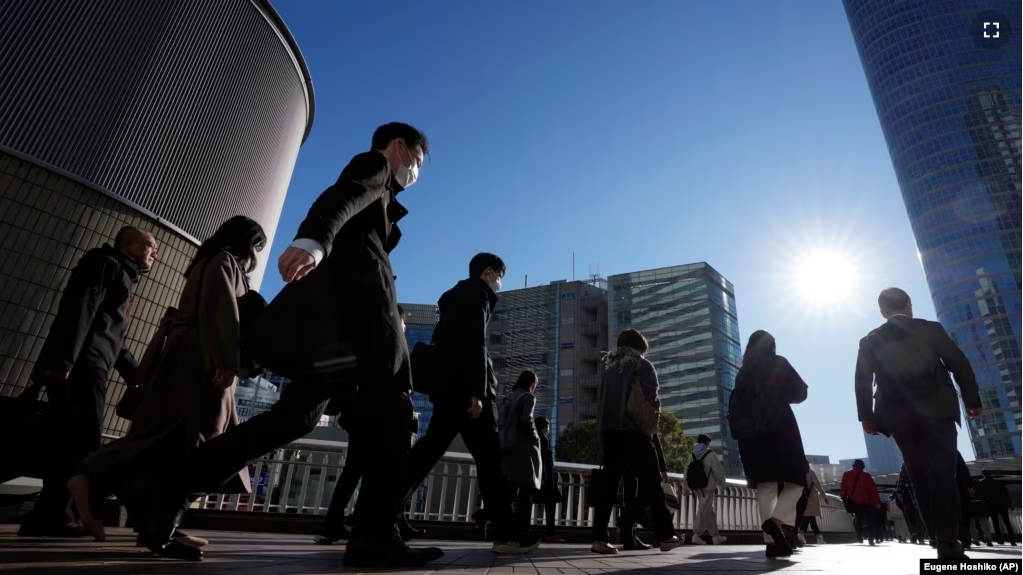Japan is a nation so hardworking that the Japanese language has a term for working oneself to death. Now, the government is trying to deal with a labor shortage.
One solution is to get more people and companies to accept four-day workweeks. The Japanese government first supported a shorter working week in 2021. Few companies have signed on, however. The Ministry of Health, Labor and Welfare said only about eight percent of companies permit three days off a week, while seven percent give their workers the required one day off.
Hoping to get small and medium-sized businesses to change, the government started a “work style reform” campaign. It pushes shorter hours and other flexible plans for work along with paid time off and limits on overtime. The labor ministry recently started offering free services and resources to help companies make the change.
‘Innovating how we work’
A ministry website explains the “hatarakikata kaikaku” campaign, which means “innovating how we work.” It says that when workers can choose how they work, they will have a better outlook on the future and the economy will grow.
The department handling the new support services for businesses says only about three companies have asked for their advice.
Such changes will not come easily in the Japanese culture, where being a “workaholic,” or frequently working overtime, has long been highly valued. That is credited for the country’s national recovery and fast economic growth after World War II.
There is great pressure to be the same as the others in one’s work group. People usually take vacations at the same time of year as their co-workers. Although the law and labor agreements limit overtime, some work longer hours without pay.
Death from overwork
A recent government report dealt with “karoshi.” That is the Japanese term meaning “death from overwork.” The report said Japan has at least 54 such deaths a year, including from heart attacks.
Tim Craig wrote a book called Cool Japan: Case Studies from Japan’s Cultural and Creative Industries.
“Work is a big deal here. It’s not just a way to make money, although it is that, too,” said Craig.
Some officials think it is time to change that way of thinking to save the workforce. Japan’s birth rate continues to fall, and the work culture is said to be one reason for that. Government reports expect that, at the current rate, the working age population will drop by 40 percent to 45 million by 2065.
Supporters of the three-days-off model say it helps people remain in the workforce longer. It would give them more time to raise children and care for older relatives. For retirees living on retirement pensions, it would provide additional income.

More time for family
Akiko Yokohama works at Spelldata, a technology company that lets employees work a four-day work week. She takes Wednesdays off along with Saturdays and Sundays. The extra day off allows her to get her hair done, go to other appointments or go shopping.
Her husband works in real estate. He also gets Wednesdays off but works weekends, which is common in his industry. Yokohama said that it lets her and her husband go on midweek family outings with their elementary-school age child.
But there are signs of change. A few companies, including Uniqlo, Ricoh and Hitachi have begun offering a four-day workweek.
A recent Gallup public opinion study measured employee engagement. Gallup said Japan has among the least engaged workers of all nationalities it has studied. Only six percent of the Japanese who answered described themselves as engaged at work compared to the worldwide average of 23 percent.
That means relatively few Japanese workers felt happy and highly involved in their workplace. Most were putting in their hours without investing passion or energy.

Kanako Ogino is president of Tokyo-based NS Group. She thinks offering flexible hours is needed for filling jobs in the service industry, where women are most of the work force. The company offers 30 different scheduling patterns, including a four-day workweek, but also taking long periods off in between work.
To ensure none of the NS Group’s workers feel out of place for choosing a different schedule, Ogino asks each of her 4,000 employees twice a year how they want to work. Voicing your own needs is disapproved in Japan, where you are expected to sacrifice for the common good.
“The view in Japan was: You are cool the more hours you work, putting in free overtime,” Ogino said with a laugh. “But there is no dream in such a life.”
I’m Jill Robbins. And I’m Mario Ritter, Jr.
Yuri Kageyama reported this story for the Associated Press. Jill Robbins adapted it for Learning English.
____________________________________________
Words in This Story
flexible – adj. easily changed
overtime – n. time spent working at your job that is in addition to your normal working hours
innovate – v. to do something in a new way
appointment –n. an activity that you need to go to at a certain time such as a visit to a doctor or dentist
engagement – n. the act or state of being involved with something
passion – n. a strong feeling of enthusiasm or excitement for something or about doing something
schedule – v. to plan (something) at a certain time
